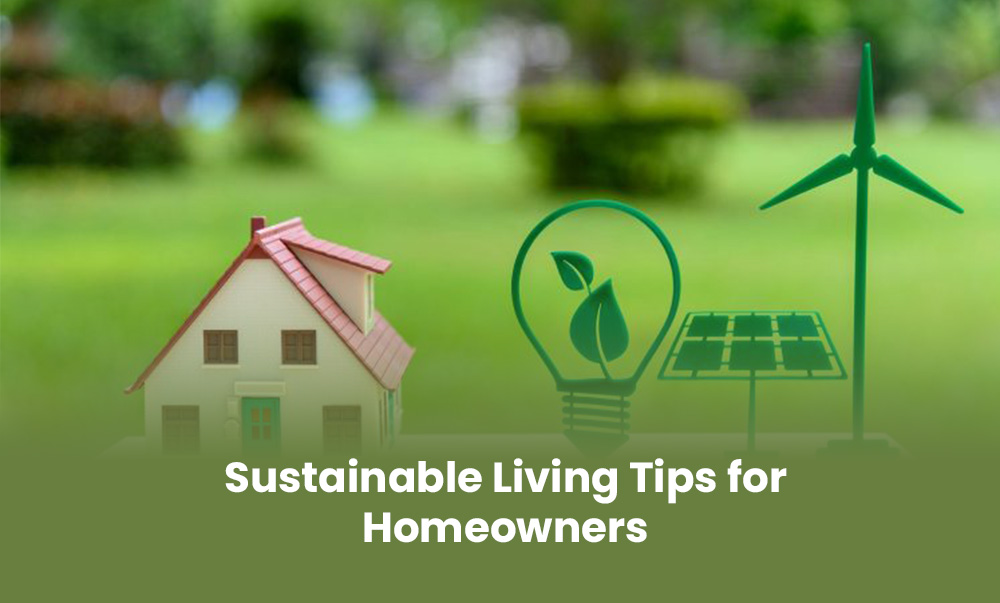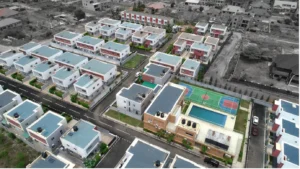In today’s world, more and more homeowners are recognizing the importance of sustainable living. By making small changes in your daily routine, you can play a significant role in protecting the environment for future generations. Here are some practical and easy-to-implement sustainable living tips for homeowners that can make a big difference.
Energy-Efficient Appliances
Investing in energy-efficient appliances is a smart way to reduce your household’s energy consumption. Look for appliances with the ENERGY STAR label, as they are designed to use less energy without compromising performance. By replacing old appliances with energy-efficient models, you can lower your utility bills and reduce your carbon footprint.
Key Benefits:
Lower Utility Bills: Energy-efficient appliances consume less power, leading to significant savings on your electricity bills.
Environmental Impact: Reduced energy consumption helps decrease greenhouse gas emissions, contributing to a healthier planet.
Improved Performance: Modern energy-efficient appliances often come with advanced features that enhance their overall performance.
Water Conservation
Conserving water is another crucial aspect of sustainable living. Simple changes like fixing leaky faucets, installing low-flow showerheads, and using a rain barrel to collect rainwater for gardening can help you save water and reduce your water bill. Additionally, being mindful of your water usage, such as turning off the tap while brushing your teeth, can make a difference in the long run.
Tips for Water Conservation:
Fix Leaks Promptly: A dripping faucet can waste gallons of water over time.
Low-Flow Fixtures: Install low-flow showerheads and faucets to reduce water usage without sacrificing water pressure.
Rainwater Harvesting: Use a rain barrel to collect and store rainwater for gardening and other outdoor uses.
Sustainable Gardening
Creating a sustainable garden is not only good for the environment but also adds beauty to your home. Consider starting a compost pile to reduce waste and improve soil quality, choose native plants that require less water and maintenance, and use organic fertilizers and pesticides to avoid harmful chemicals. Sustainable gardening practices can contribute to a healthier ecosystem in your backyard.
Sustainable Gardening Practices:
Composting: Turn kitchen scraps and yard waste into nutrient-rich compost for your garden.
Native Plants: Select plants that are native to your region, as they are adapted to local conditions and require less water and care.
Organic Gardening: Use natural fertilizers and pest control methods to keep your garden healthy and chemical-free.
Energy-Efficient Lighting
Switching to energy-efficient lighting options like LED bulbs can have a significant impact on your energy consumption. LED bulbs last longer and use less energy than traditional incandescent bulbs, helping you save money on your electricity bill. Additionally, make it a habit to turn off lights when not in use to further reduce energy waste.
Benefits of LED Lighting:
Longevity: LED bulbs can last up to 25 times longer than incandescent bulbs.
Energy Savings: LEDs use up to 75% less energy than traditional bulbs.
Reduced Heat Emission: LED bulbs produce less heat, making them safer and more efficient.
Recycling and Waste Reduction
Proper waste management is key to sustainable living. Set up a recycling system in your home to separate recyclable materials from general waste. Reduce waste by avoiding single-use plastics, opting for reusable products, and donating or repurposing items instead of throwing them away. By practicing mindful consumption and waste reduction, you can minimize your environmental impact.
Steps for Effective Waste Management:
Recycling: Sort recyclables like paper, plastic, glass, and metal, and ensure they are clean and dry before recycling.
Reusable Products: Choose reusable bags, bottles, and containers to cut down on single-use plastics.
Repurposing: Get creative with repurposing items instead of discarding them, reducing the amount of waste sent to landfills.
Incorporating sustainable living practices into your daily life as a homeowner is not only beneficial for the environment but also for your wallet. By making small changes like using energy-efficient appliances, conserving water, practicing sustainable gardening, switching to energy-efficient lighting, and reducing waste, you can make a positive impact on the planet. Start implementing these tips today to create a more sustainable and eco-friendly home for yourself and future generations.


